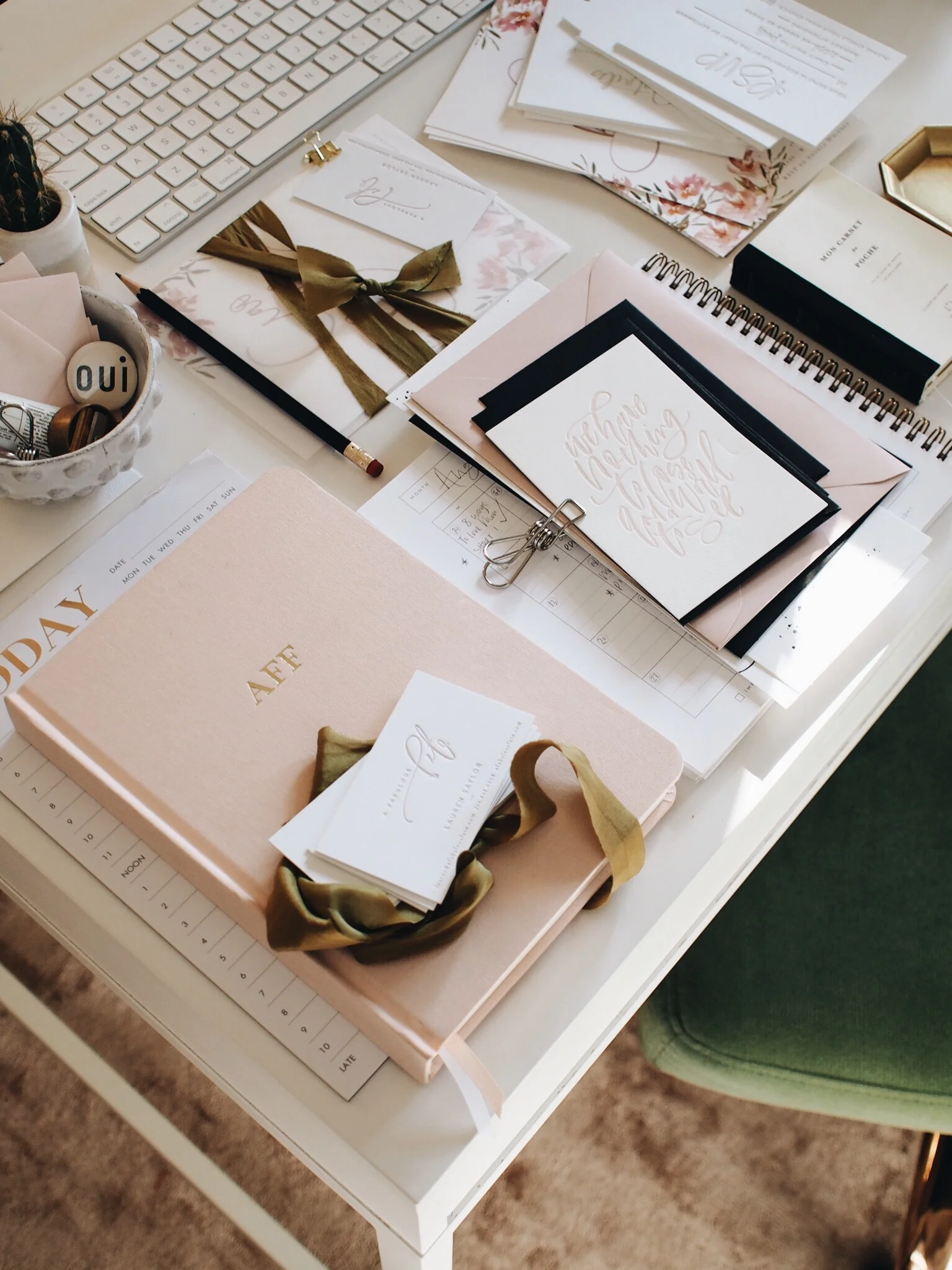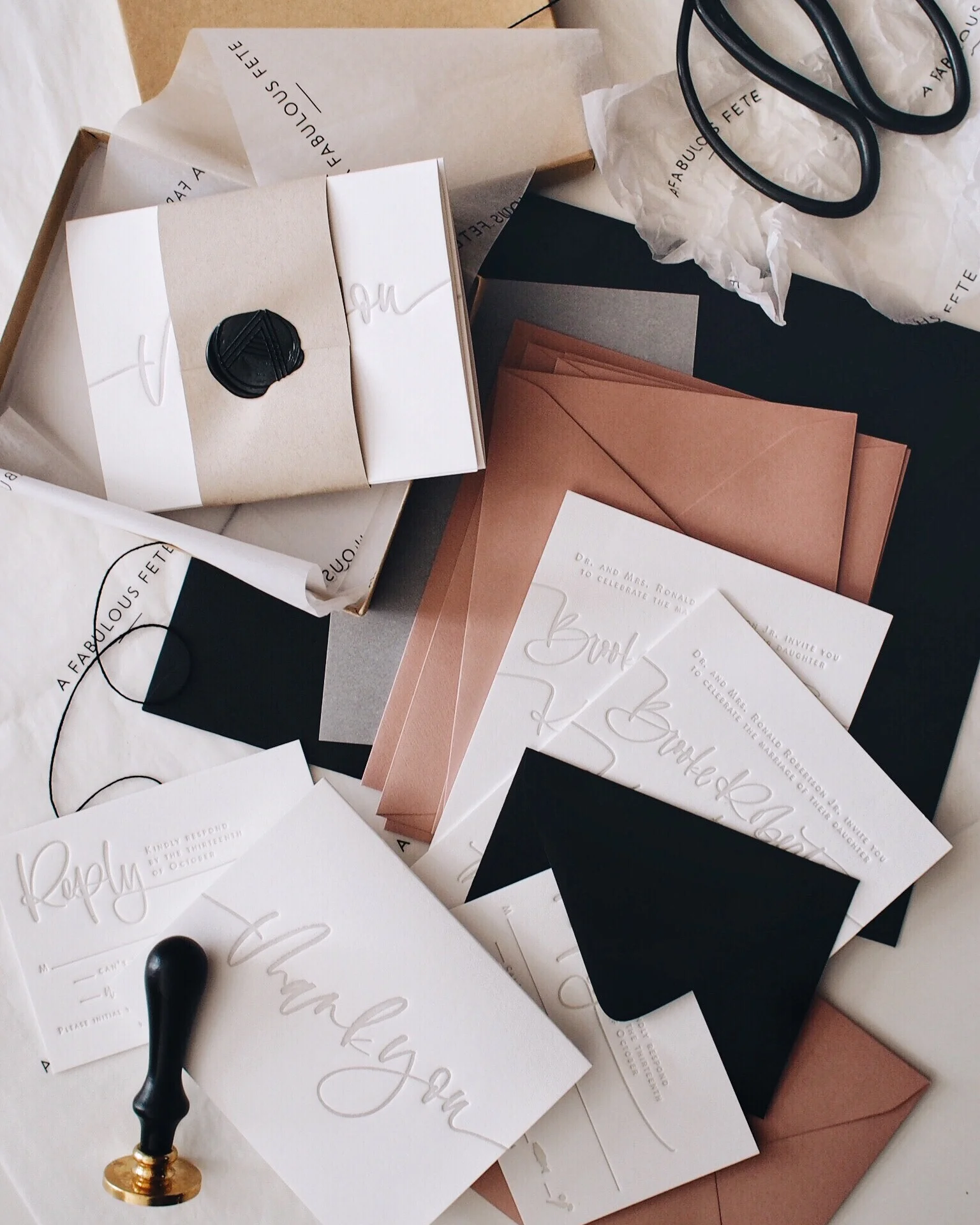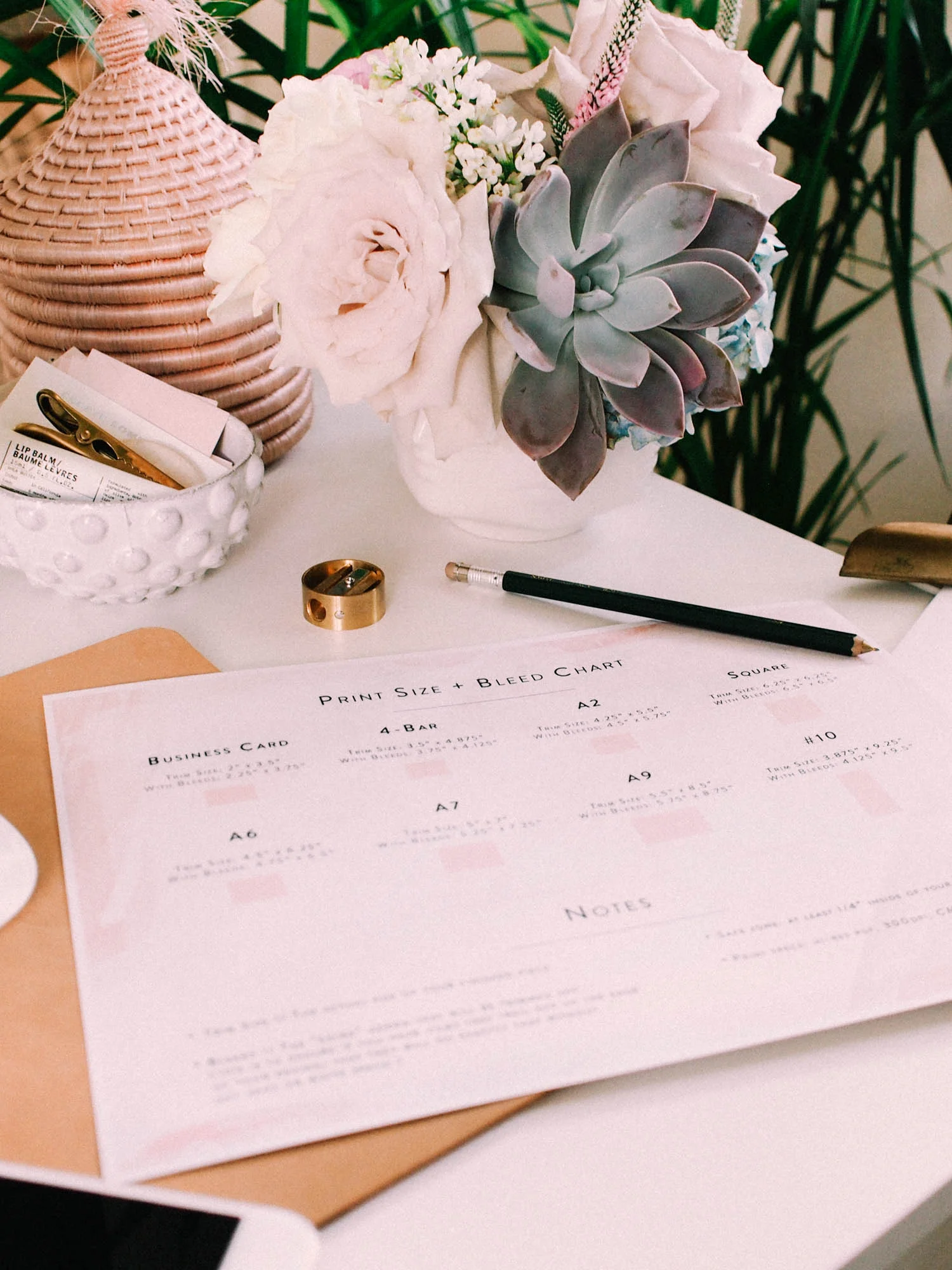Money: 6 Things You Should Know When Starting Your Biz
Money. Just saying it, or thinking about it, makes lots of people’s stomachs sink a little. It’s uncomfortable, it’s scary, and it’s always been a no-no to talk about. I won’t say that I think we should go around telling people how much we make or how we spend it, but I do think there is a lot of information we can share with each other in order to help out other small biz owners—community over competition, right?
Money is something I’ve struggled with since day one. I’ve always just looked at my bank account and decided if what I wanted was doable with the present balance. I don’t really love using credit cards, so I always functioned off of the cash I actually had. Honestly, I am so happy that this was how I started my business. I never borrowed money or put much on a cc to get going. I started small with what little cash I had and grew slowly, always putting my earnings back into the biz. I know this can’t be the case for everyone, but the more you can pay for in cash, in the beginning, the less stress you are going to feel. As our business has grown, it started to make sense for us to use credit cards for certain things (honestly, mostly for the points!). So i’ve changed my tune a bit. Although I still think if you can, pay it off every month. If you don’t, and you spend a lot on materials every month (like we do!), the balance creeps up FAST. Before you know it you’ll be struggling to pay it down + all the interest and nobody wants that stress on top of running a biz.
The cash method was an option for me because of the nature of the stationery business. Basically, you aren’t investing much besides your time when you begin with a client. So, I was able to book a client, request a deposit (pay for materials with this) and the final balance that I received was either profit or put back into the business for other expenses. Since designing stationery and calligraphy is the bulk of our business, I am going to focus on how we handled our money in that sense.
bank accounts
This is one of the first things I did to separate my personal money from anything I earned in my business. It’s so helpful to see exactly what you are bringing in as well as be able to easily separate out your expenses. This definitely comes in handy around tax time, saves you time from having to separate expenses, and gives you an “at a glance” look at the health of your business.
accountant
Luckily, right around the time I started A Fabulous Fete, I also got married. We started filing our taxes jointly, so an accountant that my husband had already been using became my accountant as well. It was questionable at first if he was going to be able to understand all the ins and outs of a creative business, but after we spent a few hours together and I was sure he understood, it was a huge weight lifted off my chest. There is no way that I will ever be able to know or keep track of the deductions I can take, or on the flip side, what I think I can be writing off, but might actually be a red flag. Your best bet is to start when your accounts are still manageable and let your accountant grow with you giving them time to really understand your industry. There are great creative biz focused accountants and bookkeepers that exist, which I’m sure will save you a bit of explaining when it comes to owning your own creative company! I would recommend doing a quick google search for small business accountants in your area.
bookkeeping
If you have ever spent 7 hours categorizing your expenses the morning before your tax appointment, then now is the time for a bookkeeper! (I asked my accountant for a reference and he sent over some names that finally led to who I work with today. You can check them out here.) I finally hired one this year because the number of accounts I now have, and the number of expenses, was getting out of hand. What you are going to have to present to your accountant at tax time, is a broken down list of your income and expenses. Your expenses will need to be categorized… for example, all of your meals + entertainment in one bucket, advertising costs in another, and general office expenses in another. I have at least 20-30 categories. Imagine trying to do that at the end of the year with everything you purchased. #TORTURE
Now with my bookkeeper, they keep me accountable every month, reconcile all of my accounts, send me monthly reports, and answer any questions if I’m unsure of how to categorize something. I have a “DIY” plan to keep costs down, so every month I have to categorize my own expenses before the bookkeeper can go in and do her thing. So while it isn’t completely off my plate, it’s much more organized when done ahead of time. I’m not worried anymore that I am trying to write something off that shouldn't be. So ya, I happily pay for that peace of mind;)
“In terms of actually deciding when it’s time to pay someone, my best advice is to decide when you feel like you are losing business because you just can’t keep up”
how much to set aside
Obviously this will vary for each type of business. What I always used to focus on having available was enough cash to cover the materials for 2-3 clients. This was also back in the day when we worked out of my home.
Now, I like to make sure that if, god forbid, we didn’t have any money come in for 2-3 months, we could keep running. This now includes rent for our office, payroll, materials for ongoing clients, utilities, and important subscription services (our social media planner for clients, fresh books, honey book, asana, dropbox, mail chimp, payroll company, etc.).
Know what you need to run and have a backup plan taking into consideration the ups and downs in your particular industry.
paying a contractor/freelancer/employee
In the beginning, the easiest way to bring on an employee is going to be as a contractor/freelancer. What defines them as being a contractor over an employee is that they do not have a set schedule. Basically, you give them a job and they do it for you at an agreed upon rate or fee. What this requires is gathering their personal information + W9 and reporting their pay for the year. Your tax guy/gal should be able to help you with this and prepare their 1099s.
Once you have grown and need people in the office for dedicated hours, you will need to make the shift to paying them as employees (which also means paying employment taxes). There are ways to do this on your own, but I personally wanted it to be taken care of, not to mention done correctly! I now use Gusto, they handle all of the taxes, reporting any necessary info to the IRS, etc. I pay a monthly fee for the service and again, have my peace of mind that everyone is being taken care of.
In terms of actually deciding when it’s time to pay someone, my best advice is to decide when you feel like you are losing business because you just can’t keep up. I remember when that day came for me. I would stay up late and wake up early to get orders done. It would take me over a week to get back to current clients. Inquiries were left unanswered because they were at the bottom of the priority list. I missed out on doing things with friends and family because I would have to work all weekend. It was no way to live! I knew that for a while, I would end up making less (because you are paying someone), but as the new employee was trained and I could let go of responsibilities, it would eventually lead to growth. And guess what, it worked out! You can start slow. Ask someone to help out 5-10 hours a week. Be transparent and let them know that if things are slow there might not be as much to do. There are plenty of people out there looking to get a glimpse inside a business like yours and learn the ropes.
We have a full post on hiring a team here if you want more details.
deposits from clients
I mentioned this above, and this is a must if you are working on long term, high cost projects. Not only does this keep your client accountable and invested in their timeline, it allows you to run the project smoothly and purchase any necessary items for the duration of the project. In the beginning, I was terrified to ask for money upfront. I thought it felt a little like I was running with their money. But, after a few clients said we were moving forward and I started on the work, then they decided to go mia, I changed my mind. This also would have been remedied by having a contract but that is an ENTIRELY separate post (that I have yet to write). The point is, make sure you have what you need to get the work done correctly and well. We do a 50% deposit on most projects, but you can definitely break it up into more payments, request less, or request more. It’s up to you!
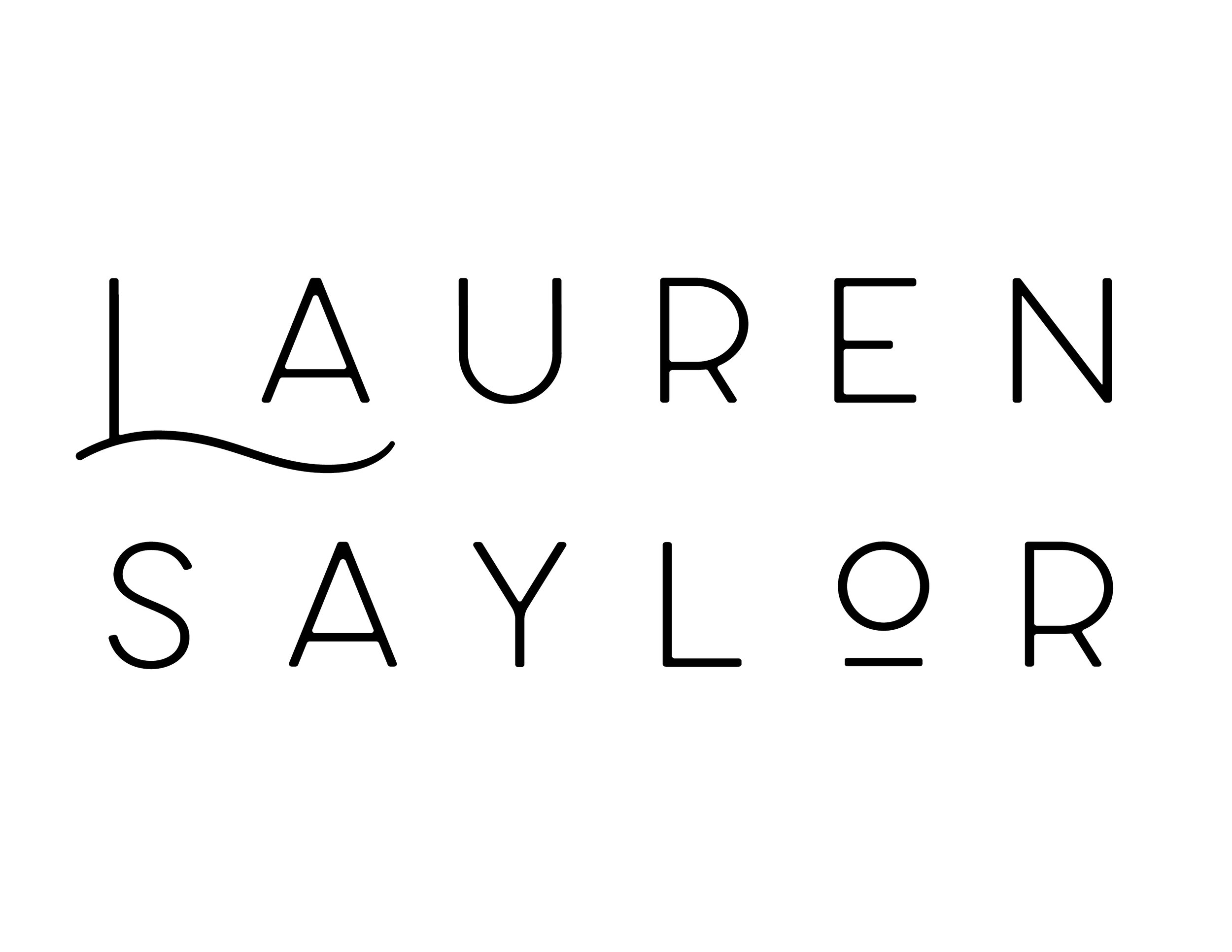

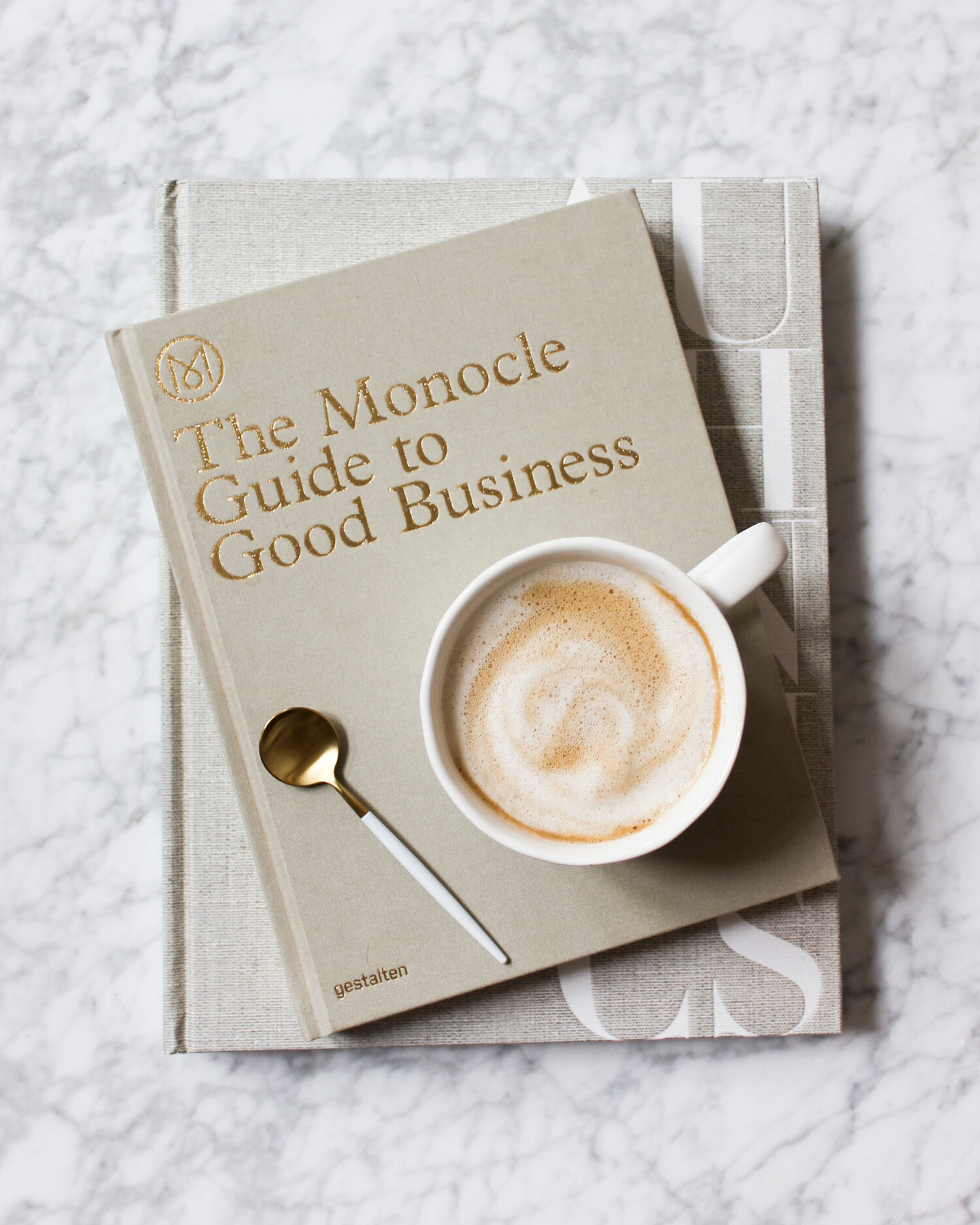




![Why You Need To Start Your Email List Today [+ How]](https://images.squarespace-cdn.com/content/v1/556e5c61e4b0a09f9d23f7da/1569605603161-VAT7021HNTP1ENOKXXEX/CreativeLibrary_Edition13_Image-25.jpg)













